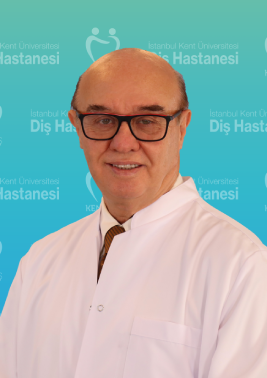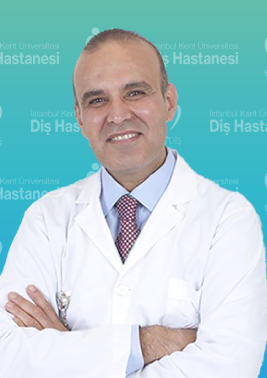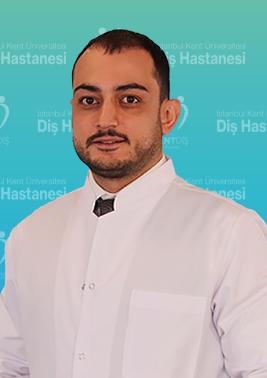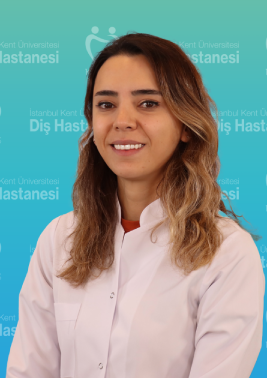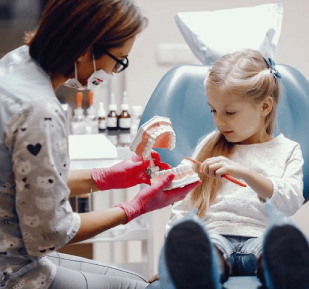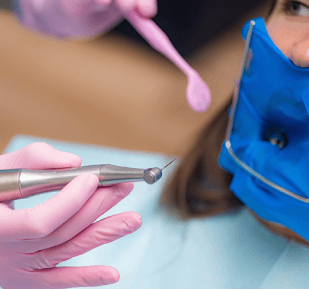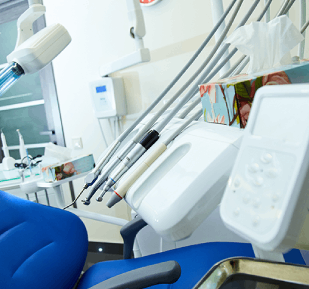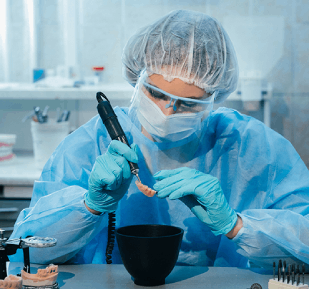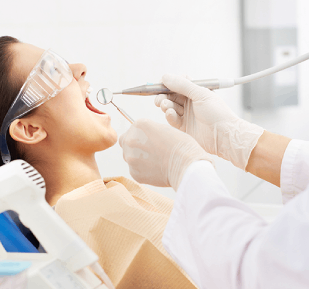
Oral And Maxillofacial Surgery
It is the department that performs the diagnosis and treatment of all disorders related to the soft tissues in the oral cavity (cheek, palate, tongue, lips, etc.) and hard tissues (teeth, bones) under local anesthesia, general anesthesia, or sedation.
Oral and maxillofacial surgery is the department that performs surgical operations in the hard and soft tissues of the mouth and jaw to assist the construction of prosthesis. It performs treatments such as the removal of traumatised teeth, construction of dental implants, sinus lifting operations, surgical removal of cysts and tumors associated with the teeth and soft tissue. Also following procedures can be performed : apical resection, oral implant operations, small biopsies, removal operations of impacted teeth and normal teeth under sedation, jaw fractures, large cysts, biopsies, operations that require maxillofacial surgery under anesthesia.
Oral surgery is performed under operating room conditions and in a sterile environment and by accomplished faculty and staff members who are experts in their respective fields.
Wisdom Teeth And The Treatment Process
Wisdom teeth are the third molars that erupt between the ages of 17 and 26. Because they are located in the most posterior region of the jaw, their maintenance and brushing can be difficult compared to other teeth. Therefore, the incidence of caries is high. It can cause pain and bad breath.
Due to the lack of space in the jaw, the wisdom teeth cannot take their place on the dental arch from time to time in a regular way, so their eruption is delayed, or they may not erupt at all. In this case, the gums and jawbone may be affected. They can cause food to be stuck between teeth and infection as a result of trauma. This condition, which causes swelling and redness on the gums around wisdom teeth, severe pain in the neck and ears, difficulty in opening the mouth, pain when opening the mouth and swallowing, is called pericoronitis.
Fully affected wisdom teeth can cause malocclusion by pushing the teeth in front of them. They can put pressure on the neighboring tooth, causing tooth decay. Wisdom teeth that have not been noticed for many years cause cysts that reach large sizes in the jaw, which can lead to serious problems.
Even if it does not cause any problems, it may be necessary to remove wisdom teeth for orthodontic treatment. A healthy wisdom tooth placed in the correct position does not need to be removed. Removal of wisdom teeth should be performed by maxillofacial surgeons.
In addition to wisdom teeth, canines and small molars can also be affected. If they cannot be corrected orthodontically, they may need to be removed with an operation.
What Is Dental Implant?
Dental implants are screws that mimic the root of teeth and are made of titanium, which is known as a tissue-friendly material that best mimics the natural tooth in the empty space. They provide proper function and aesthetics and eliminate tooth deficiency in patients who have lost their teeth for a number of reasons. It can be applied to any suitable individual, from single tooth deficiencies to patients with total tooth loss. Implants, made out of titanium, which is a material compatible with the tissue, are the most preferred treatment method today because they are the best alternative to natural teeth.
Clinical and radiographic examinations are performed by dentists and maxillofacial surgeons to evaluate the general health and to conduct the dental examination of a patient who will undergo implant treatment. The patient's expectations from the treatment and, if necessary, the suitability of the existing bone for the implant are evaluated with 3-D radiographic images. It is risky to administer this treatment to people who have a significant systemic disease that is not under control, and who have recently received radiation therapy or chemotherapy. Therefore, it is extremely important that the surgeon knows the health history of each patient who will have an implant. Dental implant can be administered at any age. However,earlier implant placement before the age of 18. It is should be evaluated by a dentist.
Dental implants can be easily applied under local anesthesia. It can also be applied under sedation or general anesthesia if necessary. The dental implant treatment process may vary depending on the number of missing teeth and the condition of the bone. In some cases, the prostodontic stage can be started on the same day, while in other cases, the construction stage of implant prostheses is usually started 3 months after the implant is inserted. If additional surgical procedures have been performed in cases where bone volume is insufficient, the duration of the application of implant prostheses may be extended as a result of methods such as sinus lifting, graft and membrane applications.
After the implant operation, the patient is given appropriate medications and informed about what needs to be done after the operation. Patients who have dental implants are asked to come for a check-up every 6 months.
What Is The Purpose Of Implant Application?
Bone resorption, which occurs due to tooth loss, leads to a decrease in the level and volume of the alveolar bone. The placement of dental implants prevents and stabilizes bone loss. Implants have a function close to natural teeth in the functioning of chewing, smiling, and speaking. This functionality provides patients with social, psychological, and physical comfort.
What Are The Advantages Of Implant Treatment?
- Eliminating The use of removable prostheses
- It opens up the possibility of using a fixed implant denture even for people who do not have teeth in their mouth.
- Since there is not enough bone support, life quality of the patient is improved by switching from removable prostheses to fixed prostheses.
- It helps to eliminate nausea in patients using total and removable prostheses.
- Thanks to the implant, a better chewing function and, accordingly, a healthier and balanced diet are accomplished.
- Patients regain self-confidence.

